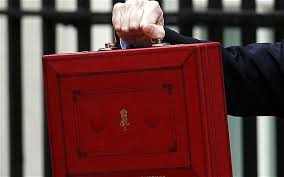You heard it on the radio (until you dozed off), you caught some of the headlines in the press, you read the papers the next day but, you haven’t really had the time to get to grips with the main content or sift through the bits that impact you as a sole trader.
I understand how challenging it is “juggling all the balls”, trying to keep up with the record keeping and hoping to keep on top of all the legislation. It’s tricky. I know that from personal experience.
And that’s why I’ve put together a summary of all the bits of the Budget 2015 that are wholly relevant to you as a sole trader running a small business (below the VAT registration limits). Grab a coffee, get comfortable and read on….(but don’t doze off!)
Abolition of the annual tax return
The chancellor promised in his Budget to abolish the annual tax return and replace it with digital tax accounts for each individual taxpayer. The mechanics will involve HMRC linking up systems of data that they already hold such as employment data, pensions and investment income. For some individuals there would no longer be the requirement to supply these figures at the end of the tax year to complete a tax return. All they would need to do is check the information for accuracy on their personalised digital tax account.
This isn’t quite as straightforward for the self employed who will still need to supply information on income and expenses to HMRC. What has been implied is that this information might be required on a very regular basis. This would certainly chivy up all those who currently leave their accounting to within a few weeks of the current 31st January deadline.
For more on this have a read of my recent blog post Will sole traders still need to complete a tax return?
Payment of income tax and NIC
Currently sole traders pay income tax and NIC in two instalments (January and July) each year. The plan is to abolish this payment system and implement a “pay as you go” option. There is no further detail on this but once again the implication is that sole traders will need to record their income and expenses regularly, possibly monthly.
Class 2 NIC to be abolished
This is the flat rate amount of NIC that sole traders currently pay by direct debit which entitles them to state benefits. This is due to be abolished in the next parliament. Class 4 NIC will be reformed and a new contributory benefit test will be introduced.
You won’t necessarily pay less tax but paying one lot of NIC is a whole lot simpler than the system previously. An additional benefit is that the currently available small earnings exemption is often overlooked by small business owners who end up paying NIC class 2 unnecessarily. An automatic assessment for this exemption will now be incorporated in the proposed class 4 NIC reform.
Saving tax
- The income tax personal allowance is increasing to £10,600 from April 2015 (for individuals born after 5 April 1948)
- A transferable tax allowance for married couples is set at £1,060 for 2015/16. This amount will be set at 10% of the personal allowance for subsequent years.
- A new personal savings allowance will be available to remove tax on up to £1,000 of savings income for basic rate taxpayers and up to £500 for higher rate taxpayers from 6 April 2016
If you’re still with me, I’d love to know your thoughts and reactions to George Osborne’s announcements. How is the budget going to affect you and your small business? Feel free to drop me a line in the comments below.

